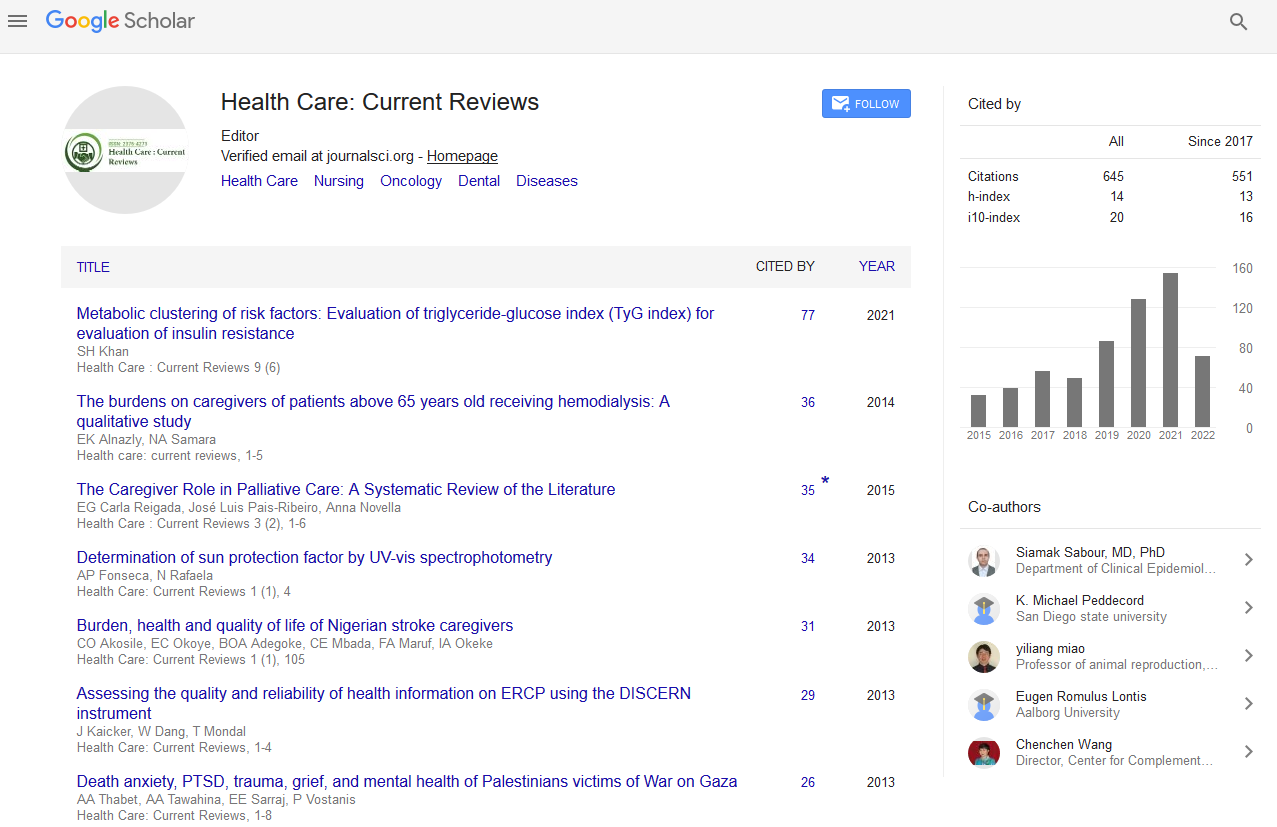PMC/PubMed Indexed Articles
Indexed In
- Open J Gate
- Academic Keys
- RefSeek
- Hamdard University
- EBSCO A-Z
- Publons
- Geneva Foundation for Medical Education and Research
- Google Scholar
Useful Links
Share This Page
Journal Flyer

Open Access Journals
- Agri and Aquaculture
- Biochemistry
- Bioinformatics & Systems Biology
- Business & Management
- Chemistry
- Clinical Sciences
- Engineering
- Food & Nutrition
- General Science
- Genetics & Molecular Biology
- Immunology & Microbiology
- Medical Sciences
- Neuroscience & Psychology
- Nursing & Health Care
- Pharmaceutical Sciences
Remotely controlled drug delivery implant for telemedicine
Global Summit on Telemedicine & eHealth
August 17-18, 2015 Houston, USA
Alessandro Grattoni
Houston Methodist Research Institute, USA
Scientific Tracks Abstracts: Health Care: Current Reviews
Abstract:
We have developed a ceramic material-based nanochannel technology for the sustained and controlled administration of therapeutics from implantable devices. The technology leverages the nanoscale interactions between molecules and channels to achieve the tight modulation of drug transport throughout the membrane�??s nanochannels. When used in �??passive mode�?�, the device is capable of zero-order sustained release of drugs for months to years without the need for pumping mechanism, as demonstrated in vivo in rodent and canine models. If an electrical filed is applied across the nanofluidic network, drug release can be tuned, interrupted, reactivated with unlimited modulation capabilities. In this case, drug release is controlled by judiciously redistributing the concentration of the ions in solution at the inlet and outlet of nanochannels and generating an ionic concentration polarization. Based on this, we have developed a next generation implant technology which comprises of a drug reservoir, and electrode coated nanochannel membrane a low-energy Bluetooth antenna for RF communications and electronics. The implant can be remotely controlled through radio frequency to activate or interrupt the drug release. This technology has received the attentions of the Center for the Advancement of Science in Space, which is supporting its development in the context of enhanced capabilities for life-science investigations on the International Space Station. Beyond testing in Space, this technology holds massive potential for the implementation of telemedicine approaches on-Earth and the improvement of the quality of life of patients. Furthermore, it may be adapted to delivering medical care to remote geographical areas or war zones.
Biography :
Alessandro Grattoni has obtained his PhD in Biomedical Engineering at Politecnico of Torino while working in Dr Mauro Ferrari’s team at the University of Texas Health Science Center in Houston. He is an Assistant Professor and Chair of the Nano medicine Department at HMRI. His laboratory’s research focuses on the development and validation of nanochannel membranes for long-term administration of therapeutics and cell transplantation.This includes experimental and phenomenological analyses within both in vitro and in vivo models. He has received support from NASA, NIH, CASIS, Vivian Smith Foundation, Nancy Owens Memorial Foundation and Nano Medical Systems, Inc.


